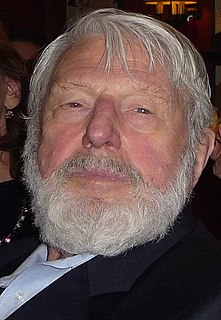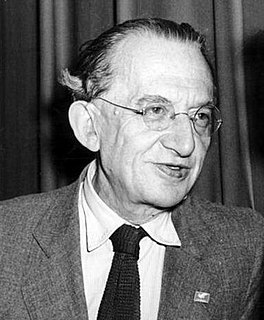A Quote by Theodore Bikel
I know for certain of only one commandment, one obligation, that God imposes upon us, and that is to be compassionate toward other human beings.
Quote Topics
Related Quotes
A person is a person through other persons. None of us comes into the world fully formed. We would not know how to think, or walk, or speak, or behave as human beings unless we learned it from other human beings. We need other human beings in order to be human. I am because other people are. A person is entitled to a stable community life, and the first of these communities is the family.
Interestingly, God's remedy for Elijah's depression was not a refresher course in theology but food and sleep... Before God spoke to him at all, Elijah was fed twice and given a good chance to sleep. Only then, and very gently, did God confront him with his error. This is always God's way. Having made us as human beings, He respects our humanness and treats us with integrity. That is, He treats us true to the truth of who we are. It is human beings and not God who have made spirituality impractical.
I think it’s the right moment to talk about it because it is part of a revolutionary perspective - how can we not only discover more compassionate relations with human beings but how can we develop compassionate relations with the other creatures with whom we share this planet and that would mean challenging the whole capitalist industrial form of food production.
At a certain point we need to grow up; we need to look inside ourselves for our inner guidance. There are things most human beings know; they just don't want to know them. They know deep down that certain things in their lives are working or aren't working, that certain parts of their lives are functional and others are dysfunctional. But sometimes, as human beings, we don't want to know what's not convenient. So we pretend not to know.
Well I know Gyuri [the familiar diminutive of Georg or György], that human beings are unapproachable, that their souls are as far from each other as stars; only the remote radiance reaches to the other. I know that human beings are surrounded by dark, great seas, and thus they look across to one another, yearning but never reaching one another
Theology necessitates an image of God as a conscious, rational, supernatural being of unlimited power and scope who cares about humans and imposes moral codes and responsibilities upon them, thereby generating serious intellectual questions such as: 'Why does God allow us to sin?' 'Does the Sixth Commandment prohibit war?'




































